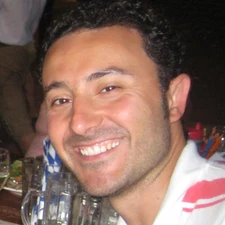Manuele Faccenda

The 2015 Arne Richter Award for Outstanding Young Scientists is awarded to Manuele Faccenda for notable contributions to understanding physical processes along convergent margins and their interaction across scales, from rock metamorphism to lithospheric faulting, seismicity, and mantle flow.
The research of Manuele Faccenda has a broad impact and offers insights into seismicity along the Benioff zone, the cycles of water in the Earth’s mantle and the seismic anisotropic structure around subduction zones, attesting for the multi-disciplinary nature of his approach. In spite of his early career stage, he has already contributed significantly to these topics, introducing an innovative and creative thinking through significant publications, and has earned the respect of a wide community in the Earth sciences, as acknowledged by awards, invited presentations and a review paper.
Faccenda has built on a background of geology, geophysics and computational sciences to achieve a broad understanding of many physical processes occurring along convergent margins. He initially worked on rock seismic velocities from laboratory measurements and then moved to geodynamics to address how processes around convergent margins interact across scales, from rock metamorphism to mantle flow. Using laboratory constrains, original computational tools, and bringing together community-developed tools, he has investigated how the lithospheric slabs deform around convergent margins, favouring hydration, and then de-hydrate once in the mantle, releasing fluids beneath volcanic arcs. His work has allowed quantifying the contribution to seismic anisotropy from lithospheric faulting and mantle flow, pioneering a multi-scale approach that melds three dimensional large-scale modelling, elastic parameters and seismic orientation calculation with laboratory constraints.
Faccenda is a very personable scientist, with many collaborators and a successful teaching and supervision experience. He is one of the brightest and most dedicated young scientists in the Earth science community and is a deserving choice for an Outstanding Young Scientists Award this year.#
